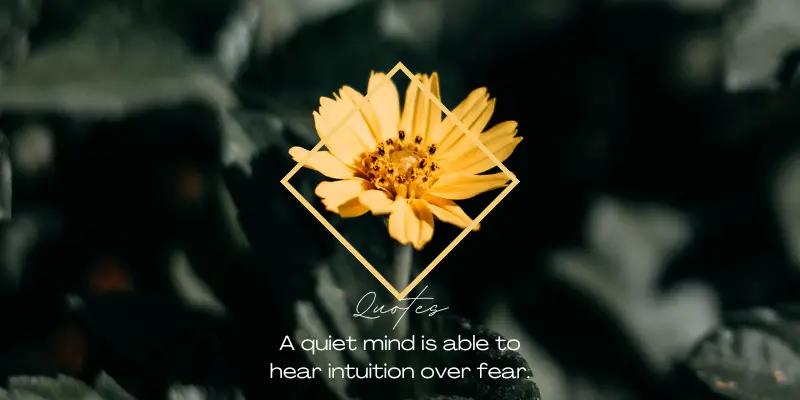What is an Intuitive Personality? Key Traits Explained
Published: 14 Jan 2026
Why do some people trust their gut feelings more than logic? That’s because they have an intuitive personality. They rely on instincts, patterns, and deeper insights instead of facts. They focus on the bigger picture, think creatively, and make quick decisions based on feelings. Understanding what an intuitive personality is helps in personal and professional growth.

Tanveer, an expert in intuitive personality, has studied how intuition shapes thinking and decision-making. This article explains the concept, key traits, and real-life examples. You’ll find this guide helpful whether you are intuitive or just curious.
By reading this, you’ll discover how intuition affects daily life. Think of it as a muscle; the more you use it, the stronger it gets. By the end, you’ll know how to use intuition wisely. Let’s begin!
Understanding: What is an Intuitive Personality?
Have you ever made a decision based on a feeling rather than facts? That’s intuition at work. People with intuitive personalities trust their instincts and look beyond what is directly in front of them. They focus on ideas, patterns, and possibilities instead of just details.
Definition of an Intuitive Personality
An intuitive personality describes someone who grasps concepts quickly without needing all the facts. They rely on instincts, patterns, and insights instead of step-by-step logic. Unlike sensing personalities, who focus on concrete details, intuitive individuals see the bigger picture first, like recognizing a completed puzzle before placing each piece.
Intuition is the whisper of the soul.Jiddu Krishnamurti
Key Characteristics of an Intuitive Personality
- Big-Picture Thinking: They focus on broad ideas and patterns rather than small details.
- Trust in Instincts: Decisions are based on gut feelings rather than step-by-step analysis.
- Abstract Thinking: They enjoy exploring deeper meanings, ideas, and hidden connections.
- Creativity: They often generate fresh ideas and innovative solutions through abstract thinking, though creativity can also be found in non-intuitive personalities.
- Future-Oriented: They naturally think ahead and explore possibilities rather than just focusing on the present.
If you often trust your gut and think about what could happen rather than what is, you might have an intuitive personality!
| Personal Experience |
|---|
|
I once had two job offers: one from a big company with a high salary and another from a small startup. Logically, the big company seemed better, but my gut told me to choose the startup. I couldn’t explain why, but I trusted my intuition. A few years later, that startup became a huge success. |
This is how intuitive personalities work. If you’ve ever trusted a strong feeling and been right, you’ve experienced the power of intuition!

How Intuitive Personalities Work in Daily Life
People with intuitive personalities trust their instincts and tend to see things that others might miss. They think about ideas, possibilities, and the future instead of facts. This changes how they work, interact with others, and make decisions.
1. In Work and Career
- Intuitive individuals excel in creative and problem-solving roles.
- They think ahead, find new ways to fix problems, and like trying new things instead of following strict rules.
- However, they might struggle in jobs that require a lot of focus on small details.
- For example, a marketing professional might guess what customers like based on feelings rather than just numbers. This helps them stay ahead of trends.
2. In Relationships and Communication
People with intuitive personalities understand feelings easily. They can tell how someone feels before speaking, making them great friends and listeners. But sometimes, they have trouble explaining their thoughts because they see the big picture instead of the small details.
Think about a friend who gives excellent advice that feels right, even if they can’t explain why. They are caring and supportive, but may be challenging to follow in a conversation.
3. Making Decisions
Intuitive people trust their instincts when making choices. Instead of overanalyzing details, they focus on the bigger picture and long-term possibilities. This helps them make bold, exciting decisions but may cause them to overlook practical details.
For example, someone might choose a fulfilling job over a higher-paying one. While this can lead to a more satisfying life, striking a balance between intuition and practical planning ensures better results. Using both gut feelings and logical thinking can help them make well-rounded decisions.
The only real valuable thing is intuition.Albert Einstein
4. Embracing Intuition
Knowing how intuition works helps people use their strengths and overcome challenges. At work, in relationships, or while making decisions, intuitive people see beyond the obvious and make more intelligent choices.

Now that you understand how intuitive personalities operate, let’s explore their strengths and challenges.
Strengths and Weaknesses of an Intuitive Personality
People with intuitive personalities have a unique way of understanding the world. They notice patterns, ideas, and connections that others might miss. While this is a significant strength, it also presents some challenges. Knowing the strengths and weaknesses of being intuitive can help people use their abilities wisely and improve where needed.
1. Strengths
Here are the powerful traits that make intuitive individuals truly stand out.
| 1. Sees Opportunities and Connections Easily |
|---|
|
| 2. Highly Imaginative and Creative |
|---|
|
Intuitive thinkers possess a strong imagination and frequently generate original ideas. This creativity helps them in fields like art, writing, and invention. Just as an artist can envision a painting before putting it on canvas, intuitive people can see possibilities before they become a reality. |
| 3. Inspires and Motivates Others |
|---|
|
Because they think ahead, intuitive individuals often make great leaders. They inspire people with their vision and excitement for the future. Their passion encourages others to take risks and believe in new ideas. A famous example is Steve Jobs, who knew what people wanted before they did, leading to the creation of groundbreaking products like the iPhone. |
2. Weaknesses
These are the challenges intuitive individuals face, but they can work through them to achieve greatness.
| 1. May Overlook Important Details |
|---|
|
While big-picture thinking is a strength, it can cause intuitive people to miss small, essential details. Their focus on ideas rather than step-by-step execution can make it challenging for them to handle precise work, such as accounting or engineering. |
| 2. Struggles with Focus and Consistency |
|---|
|
Since they love new ideas, intuitive people may get excited about starting projects but lose interest before finishing them. This makes it hard to stick with long-term plans. Setting clear goals and following a structured approach can help them stay on track. |
| 3. Overthinks and Gets Stuck in Ideas |
|---|
|
Because they analyze things deeply, intuitive people sometimes overthink a problem and struggle to make decisions. It’s like looking at a puzzle for so long that the solution becomes more challenging. Finding a balance between intuition and logic can help them make better choices without overanalyzing. |
Can You Develop an Intuitive Personality?
Some people have a natural ability to sense things before they happen. They pick up on subtle clues, read between the lines, and make quick decisions based on instinct. But is intuition something you are born with, or can it be developed? The good news is that intuition is like a muscle: it can grow stronger with practice.
1. Practice Mindfulness and Self-Reflection
Your brain processes a great deal of information without you even realizing it. Mindfulness helps you slow down and pay attention to your thoughts and feelings. Try spending a few minutes each day sitting in silence, noticing your emotions, and thinking about past experiences. The more aware you become, the better you can recognize your inner signals.
2. Trust Your Gut Feelings and Look for Patterns
Have you ever felt something was wrong but couldn’t explain why? That’s your intuition, speaking.
- Instead of ignoring these feelings, pay attention to them.
- Ask yourself why they arise and look for patterns in your experiences.
- Over time, you’ll see that your instincts often point you in the right direction.
Trust yourself. You know more than you think you do.Benjamin Spock
3. Try Creative and Abstract Thinking Exercises
- Your intuition works best when you train your brain to think creatively.
- Activities such as writing, drawing, solving puzzles, or imagining different outcomes to situations can be helpful.
- Consider intuition like being a detective; when you practice looking for hidden clues, you’ll develop a better understanding of your instincts.
Developing intuition isn’t about guessing; it’s about learning to trust the subtle signals your mind and body send. By practicing mindfulness, paying attention to gut feelings, and engaging in creative thinking, you can sharpen your intuitive abilities and make more confident choices in life.
| Did You Know |
|---|
|
Conclusion
Understanding what an intuitive personality is can help you unlock your inner strengths and navigate life with confidence. If you often rely on gut feelings, trust them! Strengthening your intuition through mindfulness and pattern recognition can lead to more informed and effective decisions.
I recommend reflecting on past decisions; think about moments when you followed your instincts, and they led you to the right outcome. You may be surprised to realize how often your intuition has guided you successfully.
Take a personality test or try a self-reflection exercise to explore your intuitive side today!
FAQs
If you trust your gut feelings, make quick decisions without overanalyzing, and sense things before they happen, you might have an intuitive personality. Intuitive people rely on patterns and subconscious insights rather than just logic. Pay attention to how often your instincts are accurate in recognizing your intuitive strengths.
Yes! Intuition and logic are not opposites; they can work together. Many intuitive people use their instincts to guide decisions and then apply logic to confirm or refine their choices.
Not always. While intuition can be a powerful guide, it is influenced by personal experiences and biases. The best approach is to strike a balance between intuition, critical thinking, and facts.
Intuitive thinkers can sharpen their decision-making by practicing mindfulness, reflecting on past choices, and learning from patterns. Keeping a journal of intuitive decisions and their outcomes can also help. Combining intuition with logical analysis leads to the best results.
Not necessarily. While intuitive people often trust their feelings, intuition is based on subconscious reasoning, not just emotions. Some intuitive thinkers are deeply emotional, while others are highly analytical.
Yes! Intuition can be strengthened by practicing self-awareness, trusting small gut instincts, and learning from experience. The more you pay attention to your inner signals, the stronger your intuition becomes.
| Reference Sources |
|---|
|

- Be Respectful
- Stay Relevant
- Stay Positive
- True Feedback
- Encourage Discussion
- Avoid Spamming
- No Fake News
- Don't Copy-Paste
- No Personal Attacks

- Be Respectful
- Stay Relevant
- Stay Positive
- True Feedback
- Encourage Discussion
- Avoid Spamming
- No Fake News
- Don't Copy-Paste
- No Personal Attacks






